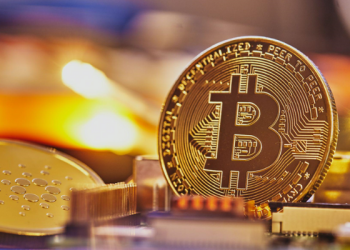In a significant blow to the world’s largest cryptocurrency exchange, Binance, Nigeria’s Securities and Exchange Commission (SEC) has declared it an illegal entity and banned its operations in the country. This decision comes shortly after the Central Bank of Nigeria (CBN) prohibited the trading of cryptocurrencies through official channels in 2021. The SEC’s action in Nigeria is further compounded by the recent lawsuit filed by the US SEC against Binance, Binance.US, and its founder and CEO, Changpeng “CZ” Zhao, alleging violations of federal securities laws. Let’s delve into the details and understand the implications of these regulatory challenges for Binance.
Nigeria’s Ban on Binance Operations:
The SEC in Nigeria issued a statement on June 9, asserting that Binance Nigeria Limited, the local arm of Binance, was neither registered nor regulated by the commission. It emphasized that engaging with the entity’s crypto asset trading platforms posed risks to investors, cautioning against investing in crypto-assets if the service provider is not registered or regulated by the commission. The SEC directed Binance Nigeria Limited to immediately cease soliciting Nigerian investors and indicated that more regulatory actions against the company would follow.
US SEC Lawsuit against Binance:
Simultaneously, the US SEC has filed a lawsuit against Binance, Binance.US, and CZ, alleging various violations of federal securities laws. The complaint claims that Binance offered unregistered securities, specifically the BNB token and the Binance-linked BUSD stablecoin, to the public. Additionally, the SEC accuses Binance’s staking service of violating securities laws. The lawsuit also involves charges against BAM Trading, the operating company for Binance.US, for failure to register as a clearing agency, broker, and exchange.
Allegations of Misconduct:
The US SEC’s complaint further alleges that Binance allowed the commingling of customer funds and that CZ exercised secret control over Binance.US. It also accuses a CZ-owned entity of inflating Binance.US’s trading volume. These allegations highlight the SEC’s concerns regarding the lack of proper registration, compliance, and investor protection measures within the Binance ecosystem.
Implications for Binance and Investors:
The ban on Binance’s operations in Nigeria severely restricts its reach and potential user base in the country. Nigeria has been witnessing significant cryptocurrency adoption and trading volumes, making it an important market for crypto exchanges. Binance’s inability to operate in Nigeria may have an adverse impact on its overall market position.
The US SEC’s lawsuit carries significant consequences for Binance’s operations in the United States. If the allegations are proven, Binance and its associated entities could face penalties, fines, and further regulatory actions. Moreover, this development raises concerns among Binance users and investors, who may question the platform’s compliance and security measures.
Bottom line:
Binance, the world’s largest crypto exchange, is facing regulatory challenges on multiple fronts. The recent ban on its operations in Nigeria and the lawsuit filed by the US SEC have cast a shadow over Binance’s operations and raised concerns among its users and investors. These developments highlight the growing regulatory scrutiny faced by the cryptocurrency industry and emphasize the need for robust compliance measures and investor protection. As the situation unfolds, it remains to be seen how Binance will navigate these challenges and regain regulatory trust to continue its operations globally.











